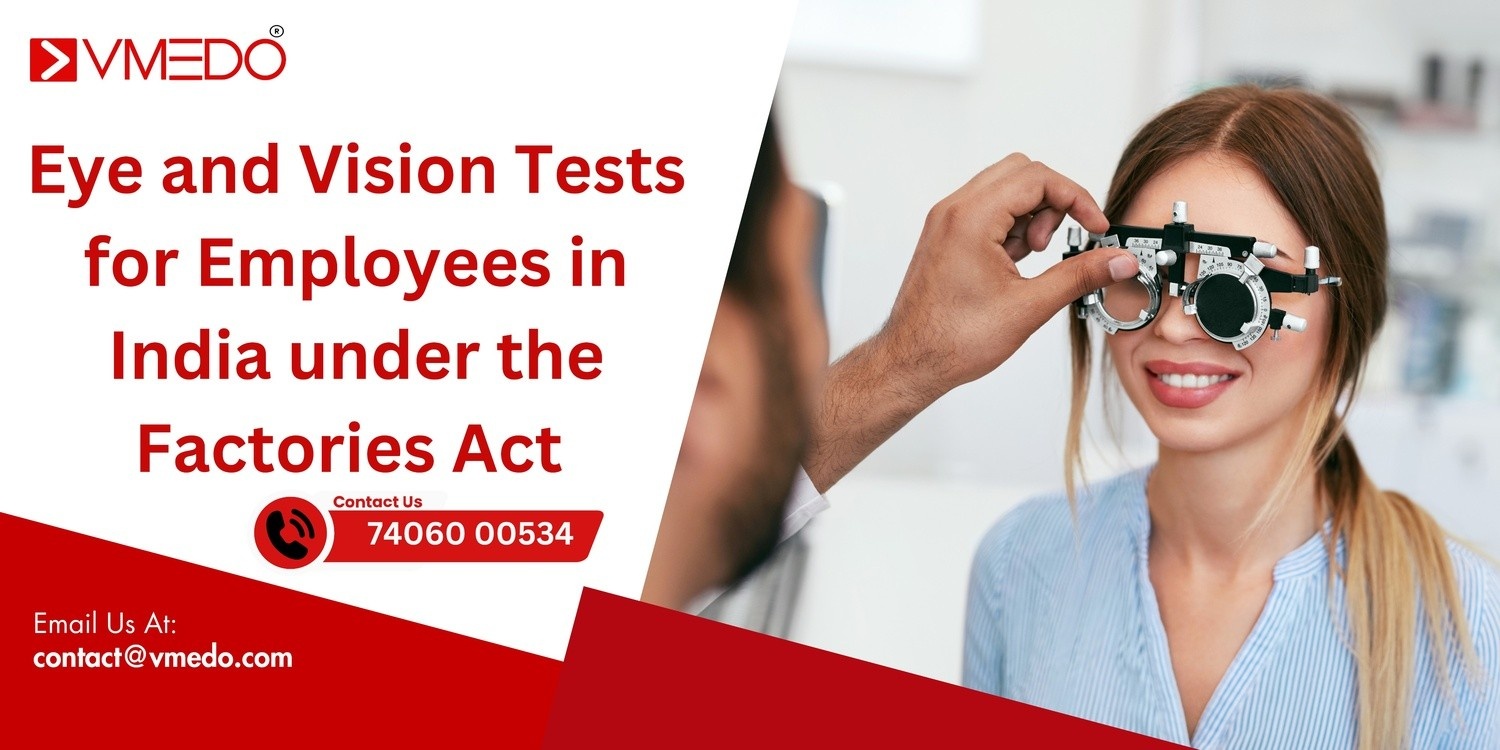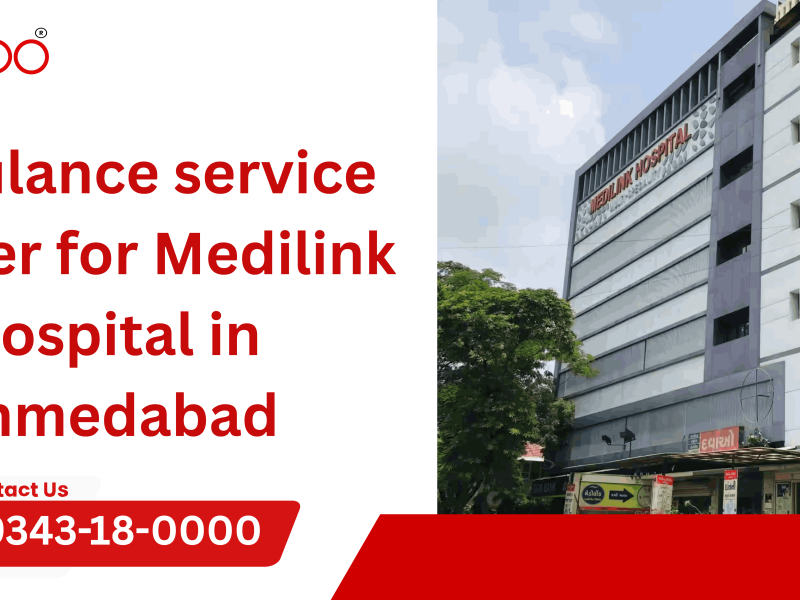In today’s digital age, maintaining eye health has become increasingly crucial, particularly in the workplace, where employees often spend long hours in front of screens. Prolonged screen time contributes to eye strain, dry eyes, blurred vision, and headaches, impacting overall productivity and well-being. Vision issues, if left unaddressed, can lead to a decrease in work performance and increased absenteeism. Prioritizing regular eye health checks for employees safeguards their comfort and enhances their effectiveness and engagement at work.
VMEDO’s Vision Testing Services provide comprehensive eye assessments tailored for the workplace, helping employers prioritize eye health. Contact VMEDO or +91 74060 00534 today to set up comprehensive vision testing for your workplace. Let’s work together to create a healthier, more focused work environment. Reach out now!
The Importance of Eye and Vision Tests for Employees
Vision problems can often go unnoticed, but if left unchecked, they can lead to significant health issues and reduced productivity. According to the American Optometric Association, nearly 75% of adults use some form of vision correction, yet many workers may not realize their vision is deteriorating. Regular eye tests are essential for the following reasons:
- Reducing Workplace Accidents
Undiagnosed vision problems can contribute to workplace accidents, particularly in environments involving machinery, driving, or hazardous materials. Poor vision can impair attention, reaction times, and the ability to read crucial signs. Regular eye tests can catch these issues early, reducing accidents. - Promoting Employee Well-Being
Vision issues can lead to discomfort, fatigue, and even depression. Uncorrected eye strain and headaches often result in absenteeism and lower morale. Regular screenings help employees address vision problems before they affect their health, leading to better overall well-being. - Boosting Productivity
Vision problems, like nearsightedness or astigmatism, can hinder performance, especially in jobs requiring detailed work. Regular eye tests ensure employees can correct these issues, improving focus and productivity. - Detecting Early Warning Signs of Serious Eye Conditions
Routine eye exams can detect serious conditions such as glaucoma, cataracts, and macular degeneration, as well as systemic issues like diabetes. Early detection helps prevent complications and protects overall health. - Encouraging Preventative Health Measures
Employees who undergo regular vision tests are more likely to adopt healthy practices, like wearing corrective lenses and improving their work ergonomics. This fosters a culture of preventative health, benefiting both employees and employers.
Incorporating eye and vision tests into workplace health programs ensures better safety, well-being, and productivity, ultimately leading to a more efficient and engaged workforce.
Types of Vision and Eye Tests for Employees
-
Visual Acuity Test
Measures clarity of vision (ability to see letters or symbols at a standard distance). Essential for workers involved in fine-detail tasks or operating machinery.
-
Color Vision Test
Identifies color blindness, crucial for jobs requiring accurate color perception, such as electrical wiring or chemical labeling.
-
Peripheral Vision Test
Checks the ability to see objects at the edge of the visual field, critical for vehicle operators or assembly line workers.
-
Depth Perception Test
Assesses the ability to judge distances, vital for tasks involving movement coordination.
-
Glaucoma Screening
Detects increased eye pressure, preventing irreversible damage to the optic nerve.
-
Screening for Digital Eye Strain
Evaluates eye health for employees spending extended hours on computers or digital devices.
Legal and Safety Standards in Vision Testing for Employees
- Regulatory Requirements in India: Certain industries in India, especially manufacturing, construction, and transportation, require adherence to health and safety guidelines that include regular vision checks. These guidelines ensure employees meet minimum vision standards to perform their roles safely, helping prevent accidents and promoting overall workplace health.
- Impact of Vision on Safety in High-Risk Jobs: In roles like driving, operating machinery, or handling hazardous materials, clear vision is essential for safety. Regular vision tests are crucial in these positions to prevent accidents and maintain a safe working environment, as even minor vision impairments can lead to serious incidents in high-risk settings.
Industries Where Eye Tests Are Mandatory
Eye tests are essential for industries where work conditions pose risks to eye health or where visual precision is critical. Here’s a closer look at some key sectors:
-
Manufacturing and Assembly Lines
Workers handle intricate components and machinery, requiring sharp visual precision. Regular eye tests help detect vision issues that could lead to defective products or accidents. Hazards include bright lights, flying particles, and prolonged focus on small details.
-
Chemical Processing Units
Exposure to harmful chemicals, fumes, and vapors increases the risk of eye irritation and damage. Regular vision checks help detect early signs of harm. Providing safety goggles and shields is crucial for worker safety.
-
Construction Industry
Construction sites expose workers to dust, debris, and bright lights, especially during welding tasks. Impaired vision increases the risk of injuries, making regular check-ups and protective eyewear essential.
-
Mining Industry
Dim lighting, fine dust, and flying debris create high-risk conditions for miners. Vision tests help ensure depth perception and peripheral vision remain optimal, reducing accidents.
-
IT and Corporate Sectors
Prolonged screen exposure leads to Computer Vision Syndrome (CVS), causing dry eyes, headaches, and blurred vision. Regular screenings help detect and address these issues, improving employee comfort and productivity.
Tips for Maintaining Eye Health in the Workplace
- The 20-20-20 Rule: Every 20 minutes, take a 20-second break to look at something 20 feet away. This simple exercise helps reduce eye strain from prolonged screen time.
- Proper Workspace Lighting: Minimize glare and adjust screen brightness to match ambient light levels, reducing strain on the eyes.
- Ergonomic Setup Tips: Position screens at a comfortable distance, use anti-glare filters if needed, and encourage regular blinking to prevent dry eyes. Small adjustments can make a big difference in maintaining eye comfort throughout the day.
Companies That Should Conduct Eye and Vision Tests for Employees
- Manufacturing & Industrial: Employees exposed to machinery, chemicals, or dust.
- Office-Based & IT: Workers with long screen time are prone to digital eye strain.
- Construction & Engineering: Employees exposed to potential eye injuries or poor lighting.
- Transportation & Logistics: Drivers and operators need optimal vision for safety.
- Healthcare & Labs: Workers requiring precision for medical tasks.
- Pharmaceutical & Chemical: Employees handling hazardous substances.
- Mining & Oil & Gas: Workers exposed to harmful particles and chemicals.
- Food Processing & Packaging: Employees performing detailed visual tasks.
- Education & Research: Teachers and students with prolonged reading or equipment use.
- Retail & Customer Service: Employees performing detailed visual inspections.
Eye tests ensure safety, productivity, and compliance with regulations. Contact VMEDO at +91 74060 00534 to set up a vision testing program.
VMEDO Services
- Annual Health Checkups for Employees (Factories Act Compliance) in India
- Pre-Employment Health Checkups in India
- Lung Function/PFT Tests for Employees in India
- Blood Tests for Employees (Factories Act Compliance) in India
- ECG Tests for Employees in India
- Audiometry Tests for Employees in India
- Eye/Vision Tests for Employees in India
- Medical Fitness Certificates (Factories Act Compliance)in India
- HIV/HBs Tests for Employees in India
- Chest X-Rays for Employees in India
- Hepatitis B Vaccinations in India
- HPV Vaccinations in India
- Tetanus (TT) Vaccinations in India
Frequently Asked Questions (FAQ) on Eye and Vision Tests for Employees
-
Why are eye and vision tests important in the workplace?
Eye tests help identify undiagnosed vision issues, reduce workplace accidents, enhance employee well-being, and improve overall productivity.
-
How often should employees undergo vision tests?
Annual eye exams are typically recommended. For high-risk jobs or roles involving extended screen time, more frequent testing may be necessary.
-
What are the key types of vision tests for employees?
Common tests include visual acuity, color vision, peripheral vision, depth perception, glaucoma screening, and digital eye strain assessments.
-
Are eye tests mandatory for all industries?
They are legally required in high-risk sectors like manufacturing, construction, mining, and transportation. For other industries, they are highly recommended as part of preventive health programs.
-
What health conditions can be detected through vision tests?
Routine eye exams can reveal conditions like glaucoma, cataracts, macular degeneration, and diabetes, ensuring early intervention.
-
How do prolonged screen hours affect eye health?
Excessive screen time can cause Computer Vision Syndrome (CVS), leading to dry eyes, headaches, blurred vision, and discomfort.
-
Can employers provide on-site eye testing services?
Yes, many organizations partner with vision care providers to offer on-site screenings as part of employee health programs.
-
Are vision tests covered under employee health benefits?
This depends on the employer’s policy. Many companies include eye tests in their health benefits or provide subsidies for corrective lenses and eyewear.
-
Are there legal consequences for not conducting eye tests in mandatory sectors?
Yes, failure to comply with vision testing requirements in industries like construction or mining can lead to legal penalties, increased liability, and workplace accidents.
-
What steps can employees take to maintain eye health?
-
- Follow the 20-20-20 Rule to reduce strain.
- Use ergonomic workstations and proper lighting.
- Blink regularly to prevent dry eyes.
- Attend scheduled vision tests and address any issues promptly.
-
Can eye conditions affect overall health?
Yes, eye exams can detect systemic health conditions like diabetes, high blood pressure, and even signs of neurological disorders, linking eye health to broader well-being.
-
What are the costs involved in workplace vision testing?
Costs depend on the type of tests, provider fees, and frequency. Some companies negotiate packages with healthcare providers or utilize insurance benefits to cover costs.
-
How do vision issues impact workplace safety?
Poor vision can lead to errors, slow reaction times, and accidents, especially in high-risk roles involving machinery, vehicles, or hazardous materials.
-
Can wearing glasses or contact lenses resolve all vision-related workplace challenges?
While corrective lenses address many vision problems, regular check-ups are still essential to ensure optimal eye health and detect other potential issues.
-
What workplace adaptations can support better eye health?
-
- Install anti-glare screens.
- Adjust lighting to reduce strain.
- Encourage breaks from screens.
- Provide protective eyewear in hazardous environments.
-
Are there industry-specific requirements for eye tests?
Yes, industries like aviation, transportation, and healthcare often have stringent requirements to ensure employees meet specific visual standards for safety and performance.
-
How can digital tools aid in workplace eye health?
Blue light glasses, screen filters, and vision health apps can reduce strain and track eye health, complementing traditional eye exams.
-
What happens if an employee fails a vision test?
The employee may need corrective lenses or medical treatment. Employers should provide support and accommodate necessary adjustments for the employee to continue working safely.
-
How do vision tests benefit employers?
They reduce absenteeism, prevent accidents, enhance productivity, and foster a culture of care, making them a worthwhile investment for any organization.
-
What is the role of VMEDO in workplace vision testing?
VMEDO offers tailored vision assessment programs for diverse industries, ensuring compliance, safety, and employee well-being. Contact us today to set up your workplace eye health initiative!
-
Cities VMEDO operates?
Bangalore, Chennai, Hyderabad, Mumbai, Kolkata, Pune, Ahmedabad, Delhi, Kochi.



